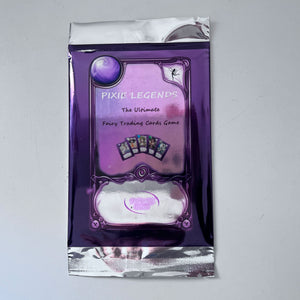The most famous of all folklore, Forest fairies. No wonder why a great amount of significance was highlighted towards the Enchanted Forests of ancient times. The tales of various spirits wandering across the trees and nature. After all, it was their homeland.
Forest Fairies were known to be very multi-talented. They possessed brilliant skills of craftsmanship, hence made their instruments out of wood and rocks. Not only that, but their DIY characteristic allowed them to utilize twigs and flowers to personalize their outfits, how cool! These fae folk were known to be territorial; they would protect their home with their everything.
Ever wondered why they tell you not to go in the woods? These might be the evil spirits everyone warns you about. Like humans, fairies have 2 sides- evil or good. Some find delight in causing harm to others and some are fond of helping and befriending humans.
Unfortunately, all we know about forest fairies now is only through the mainstream media but the real depiction might not be what you’re expecting at all. Now Now, don’t we all want to know these different types of forest fairies that we’re missing on?
1. Leshy
From Slavic mythology, this creature is described as a ‘he’; masculine and bearded. Yes, it is not like the typical fairytales you might be expecting, but that’s how it really was back before the 20th century. Leshy had a love story of his own; being married to Lesovikha and having little babies, whom they called Leshonki. D’aw!
Although he had a soft spot for Lesovikha, he didn’t show it to our folk tellers. Mostly regarded as an evil fairy, Leshy was known to be very territorial. Having the amazing power of shape-shifting allowed him to lead travelers astray in different ways. He would find pleasure by leading the travelers astray and abandoning them deep inside the forest maze.
Our folklores portray Leshy surrounded by wolves and a pack of bears. A reason he associated with bears so strongly was because of their hibernation. Interestingly, Leshy and its kin hibernated all through autumn. And if in spring weather conditions escalated too unexpectedly, everyone knew there was a fight going on between Leshies. That’s enough entertainment for y’all.
2. Huldra
Huldra is a famous German and Scandanavian mythology. Opposite of Leshy, Huldra was described as a beautiful, tall, fair, and blonde woman. However, she had a cow-tail on her back which she tried hiding all the time. The popular quality mentioned in almost all the mythologies about Huldra is being a seductress. She was known to lure young boys and men, often with either of the following 2 purposes.
Huldra would either test the young men in the form of seducing them, just to reward them for their pure heart. She would do that by attracting the men by her breath-taking beauty or melodious voice, only to end up showing them her tail. If the men passed her test and proved to be courteous, he was awarded good fortune or wise advice.
On the Contrary, some had other plans. Using their seductiveness, they planned to get rid of the only hideous thing they had, the tail. Luring young men and having physical intimacy with them only to force the men to marry them. Finally, once they would get married, the Huldras would lose her tail and kill the men. Scary, we know.
3. Moss Folk
Another class of the Fairy folk would be Moss Folk. These are tree guardians and they look like dwarves or elves, because of their height. The major difference might be these creatures are usually described as hairy, old, and wrapped up in moss. These became one of our favorites and let’s tell you why.
These creatures were the elderly of the forest, protecting their land with all that they have. Their advice was ought to be the wisest and only the lucky ones ever had the chance to get it. Humans dreamt to befriend one of these folk to be awarded the forest secrets. Usually, the Moss folk would teach about what herbs could be used as medicines.
Unfortunately, all protectors have an aggressive side. When it came to their homeland, Moss folk would not show any mercy. Just how a mother cares about their children, Moss folk would not bear their saplings being dishonored and would even go to the extent of forcing the offender out of the forest!

4. Wood Wives
If the Moss Women would ever turn out beautiful and young, they were referred to as Wood Wives. They are often associated with Huldra, mentioned above in the article, due to their resembling features. Seductive qualities might also classify them in a similar group.
Similar to the plan of good-spirited Huldras, Wood wives would also ask men for favors but with a purpose. If the men would agree to her favors, only for a return of wood chips as a reward, then those men were the luckiest of us all. Those invaluable woodchips would turn to gold, awarding the men for their good manners.
A horrifying event that includes the wood wives is the Wild Hunt in German and Celtic Mythology. Here, a large crowd of wild huntsmen would fly in nighttime and hunt the wood wives and moss maidens. These innocent fairies could only seek refuge in trees marked with crosses. These events make us sympathize with the Moss Folk even more.
Final Words
The more we find out about the different folk mythologies, the more we become aware of the fact that this was the reality back then. People used to have strong beliefs in all of these forest fairies and the folklores were based on their actual thoughts.
We acknowledge how different our modern views of forest fairies have become, reducing them to only a specific kind of mythological creature.
Here, we wanted to be all transparent and show you the folklore reality, beyond the fantasy novels and movies we see now. Hope the conventional view creates interest in you as much as it did in us.









